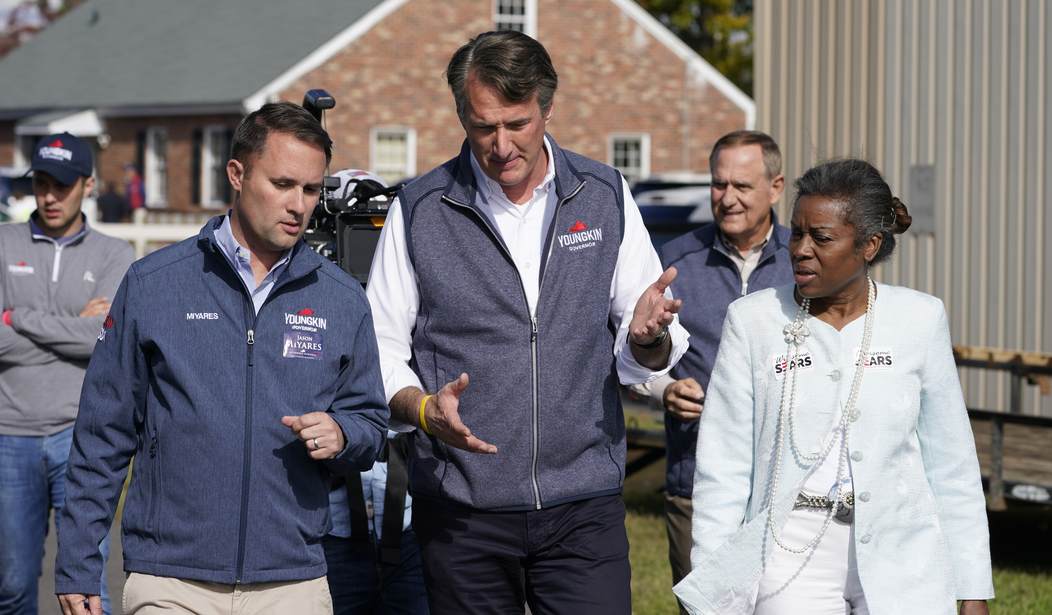By December 31st, 2024, Virginia will no longer be bound to California’s electric vehicle (EV) mandate.
On Wednesday, Governor Glenn Youngkin (R-VA) and Attorney General Jason Miyares officially announced our exit from the California Air Resource Board (CARB) Advanced Clean Car (ACC) program.
“Once again, Virginia is declaring independence – this time from a misguided electric vehicle mandate imposed by unelected leaders nearly 3,000 miles away from the Commonwealth,” Governor Youngkin said. “The idea that government should tell people what kind of car they can or can’t purchase is fundamentally wrong. Virginians deserve the freedom to choose which vehicles best fit the needs of their families and businesses. The law is clear, and I am proud to announce Virginians will no longer be forced to live under this out-of-touch policy.
“EV mandates like California’s are unworkable and out of touch with reality, and thankfully the law does not bind us to their regulations. California does not control which cars Virginians buy and any thoughts that automobile manufacturers should face millions of dollars in civil penalties rather than allowing our citizens to choose their own vehicles is completely absurd,” added AG Miyares.
Virginia was forced into the ACC’s first iteration - ACC I - in 2021 after former Governor Northam signed House Bill 1965 into law. This transpired during Democrat control of Richmond between 2020-2021. The current iteration, ACC II, was adopted in 2022 after Virginia’s entry in the program. This 2022 standard coerced 17 states and Washington, D.C., to pivot to 100% EV sales by 2035.
Per AG Miyares’s opinion, we can formally exit ACC because the Virginia Air Resources Board didn’t adopt ACC II standards and, in turn, will solely comply with federal standards starting January 1st, 2025.
Recommended
Virginia Secretary of Natural Resources Travis Voyles explained that participation in ACC II, enacted after Virginia’s entry into ACC I in 2021, would mandate 35% of new cars sold, starting Model Year 2026, be electric. Failure to comply, Voyles added, would result in “penalties could total upwards of $20,000 per vehicle, an increase from the $5,000 per vehicle violation penalty under ACC I.”
Therefore, exiting from this mandate is a huge win for Virginia car dealers and consumers. For taking such a bold and lawful stance, Governor Youngkin, however, was accused of hating the environment and channeling Vladimir Putin.
Congressman Don Beyer (D-VA), the congressman whose name and likeness is found at many Northern Virginia car dealerships, tweeted, “Governor Youngkin marks World Environment Day by taking steps to make Virginians’ air dirtier, increase carbon pollution, and slow our clean energy transition. These standards were enacted by the Virginia General Assembly and signed into law to fight climate change.”
Virginia State Senator Scott Surovell, my state senator who is also the majority leader, said in a statement, "Governor Youngkin thinks he has more power than Vladimir Putin. He does not have the power to declare what the law is and what it isn’t."
These unhinged statements are entirely devoid of reality. Why? The touted environmental benefit of EVs is highly debatable. A recent study found they emit more toxic emissions than gas-powered cars. Their tires wear out quickly, fare poorly on roads, and could exacerbate pollution. Not to mention, more rare earth elements required for these “green” cars are sourced in countries with poor human rights and environmental records. Moreover, mandates - whether they hail from Sacramento or the Environmental Protection Agency (EPA) in Washington, D.C. – are authoritarian in nature because they restrict choice and impose undue burdens on producers who later pass costs down to consumers. That’s why American consumers are reluctant to ditch the cars for EVs. Poll after poll confirms this.
AAA, like CNBC, observed the EV hype among consumers is waning. Their recent poll found that only 18% of respondents would buy EVs, while 63% of those polled reported they’re “unlikely or very unlikely” to ever purchase one. They cited three reasons: cost (even with nice Inflation Reduction Act subsidies), limited charging options, and range anxiety.
Given the unpopularity of EV mandates, Americans aren’t warming up to the whole-of-government effort to catalyze EVs either.
The Biden administration has repeatedly claimed more federal spending for EV charging stations will convince Americans to buy EVs. But that’s not true—even with over 183,000 private stations available today.
Transportation Secretary Pete Buttigieg couldn’t explain why the Federal Highway Administration (FHA) has only built eight publicly-funded stations with $7.5 billion it received from the 2021 Bipartisan Infrastructure Act–well behind the administration’s goal to build 500,000 charging stations by 2030. Talk about an unmitigated disaster.
Even Democrats, like Senator Jeff Merkley (D-OR), have questions about this disastrous rollout.
"That is pathetic. We're now three years into this ... That is a vast administrative failure," Merkley said. "Something is terribly wrong and it needs to be fixed."
The problem isn’t EV deployment; it’s the government picking winners and losers and distorting the markets to unfairly tip the scales in favor of EVs.
From the EPA tailpipe rule to the CARB EV mandate, this push to go net-zero by arbitrary deadlines - by way of EVs - will crash and burn. And it already is. Kudos to the Youngkin administration for pumping the brakes here.
























Join the conversation as a VIP Member